Demand and supply was the key theme of the 8th Arab-German Education and Vocational Training Forum on 27 and 28 March 2019. iMOVE and Ghorfa welcomed around 140 guests from Arab countries and from Germany to the event in Berlin.
8th Arab-German Education and Vocational Training Forum: Demand meets supply
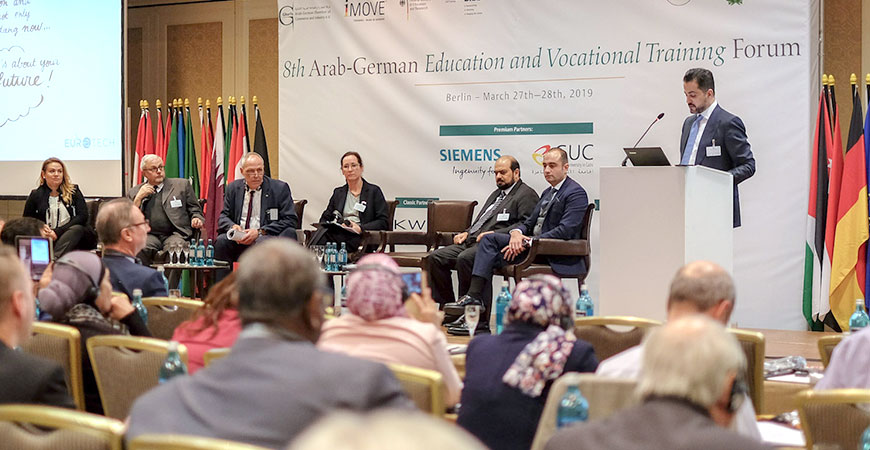
What is dual education and training in Germany?
First stop, the German Ministry of Education.
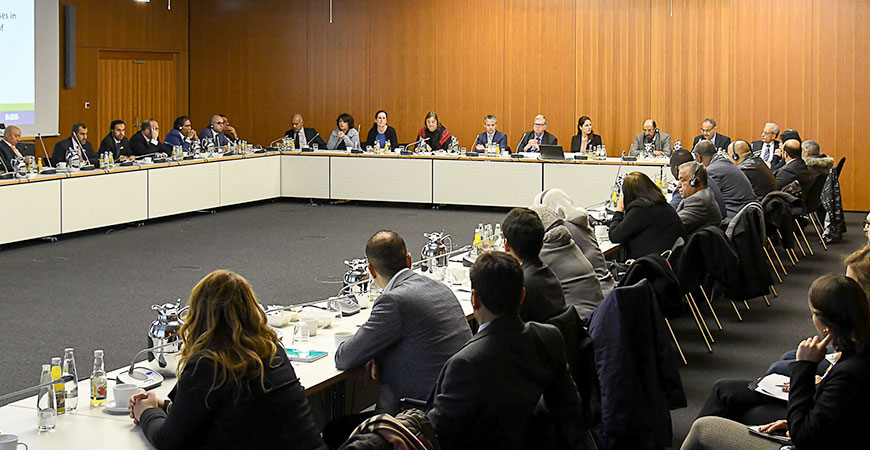
To start the two-day conference, the guests from Arab countries were welcomed at the Federal Ministry of Education and Research (BMBF) by Frithjof A. Maennel, Deputy Head of the "International Cooperation in Education and Research" department.
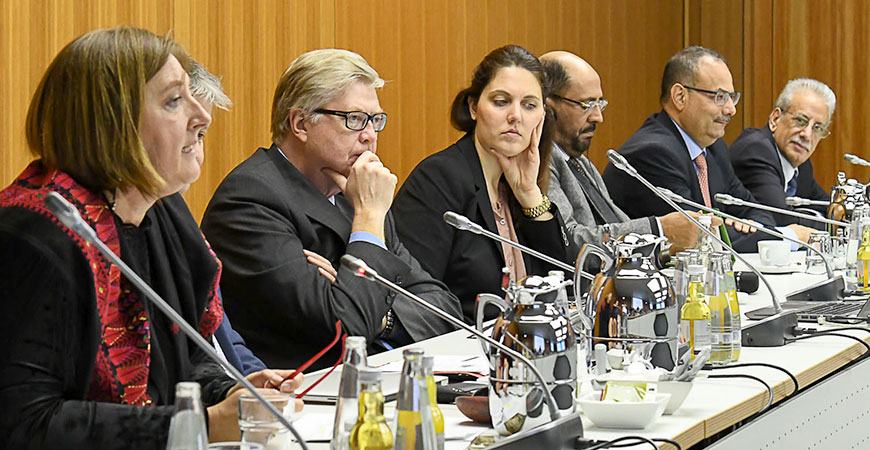
The guests from the Arab countries were welcomed on behalf of organizers iMOVE and Ghorfa by Abdulaziz Al-Mikhlafi, General Secretary of the Ghorfa Arab German Chamber of Commerce and Industry, and by Birgit Thomann, Head of the "Vocatonal Education and Training (VET) International" department at the Federal Institute for Vocational Education and Training (BIBB).
Birgit Thomann, seated far left, welcoming guests from Arab countries to the 8th Arab-German Education and Vocational Training Forum. Frithjof A. Maennel from the Federal Ministry of Education is seated third from the left. Abdulaziz Al-Mikhlafi from Ghorfa is seated second from the right.
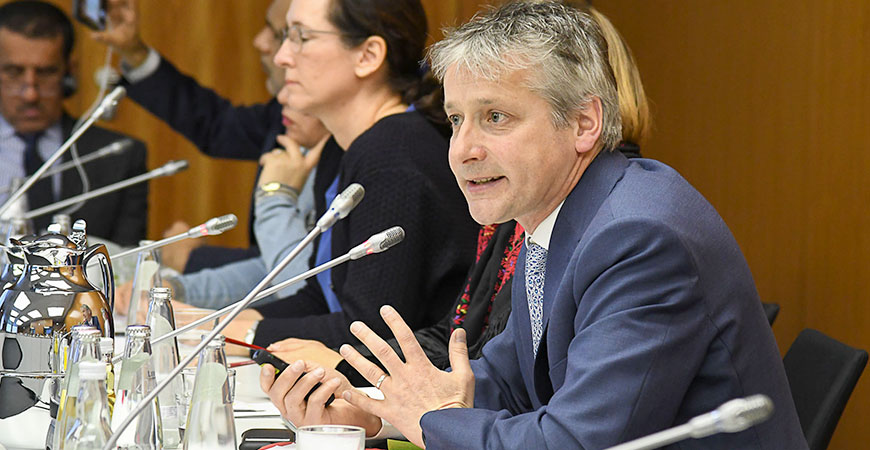
Professor Dr. Hubert Ertl (seated front right), Vice President and Director of Research of the Federal Institute for Vocational Education and Training (BIBB), explained the costs and benefits of vocational education and training (VET) to the guests.
His presentation entitled "Beyond the numbers – The role of cost/benefit analyses in the debate on attractiveness of training in Germany" left such a lasting impression on guests that the subject was repeatedly raised in discussions that evening and during the following day.
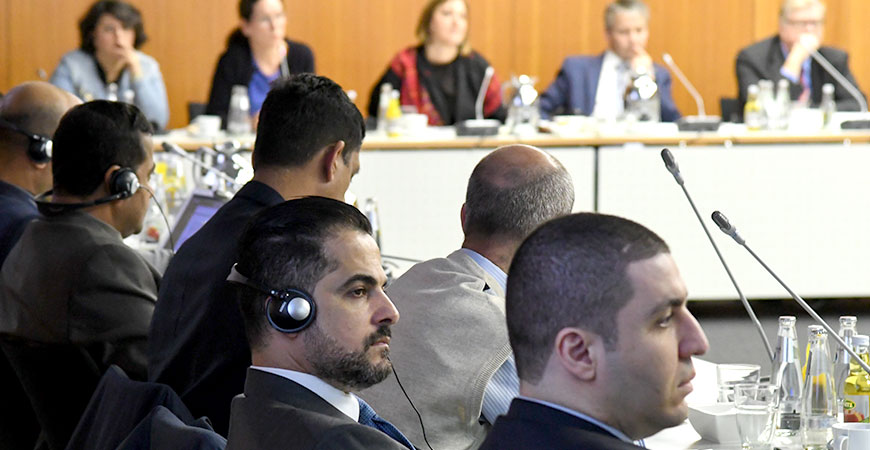
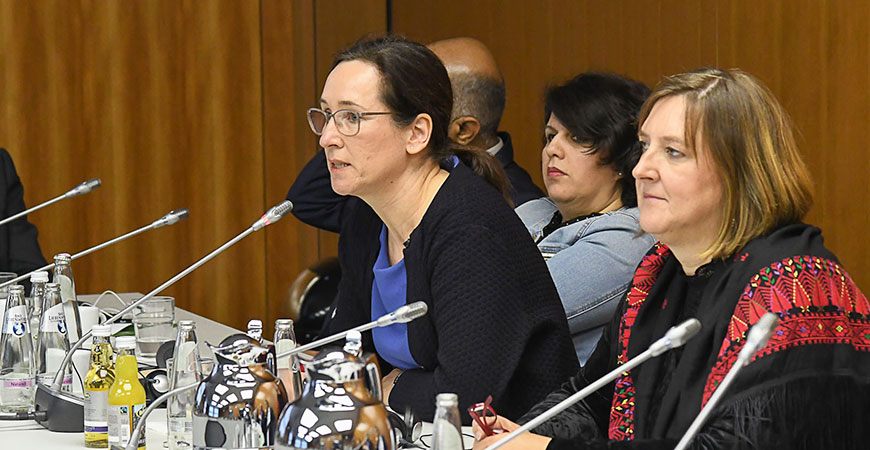
Kristine Faenger (speaking into the microphone), Regional Manager for Arabic Countries at iMOVE, presented the initiative to guests with the slogan of "Your Gateway to Training – Made in Germany".
During bilateral discussions over the course of the forum, the guests from Arab countries repeatedly referred to services offered by iMOVE on a commercial basis as opportunities for supporting VET cooperation. This was an indication for the organisers that statements made regarding iMOVE at the start of the conference were important.
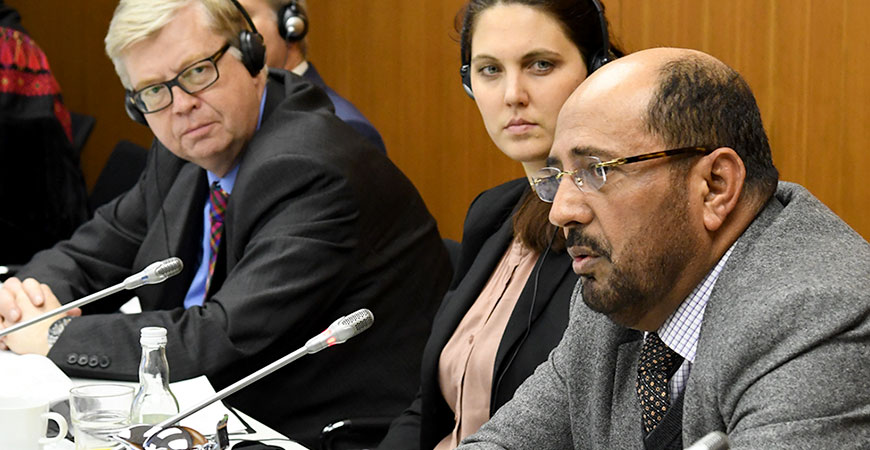
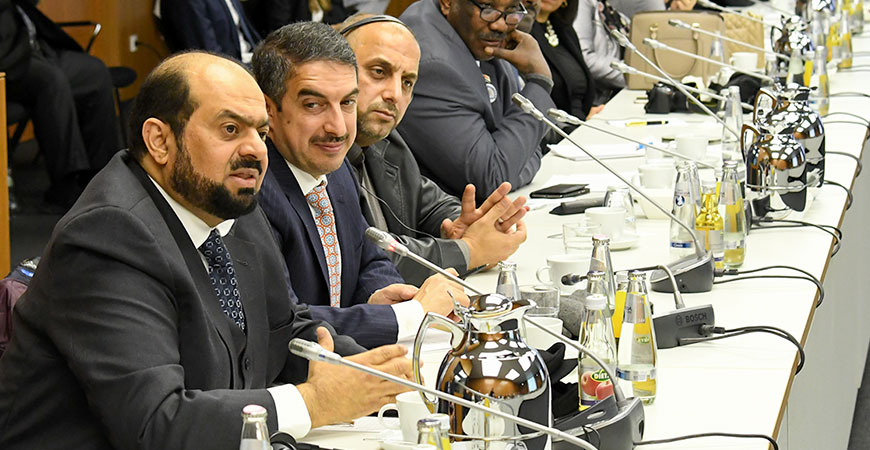
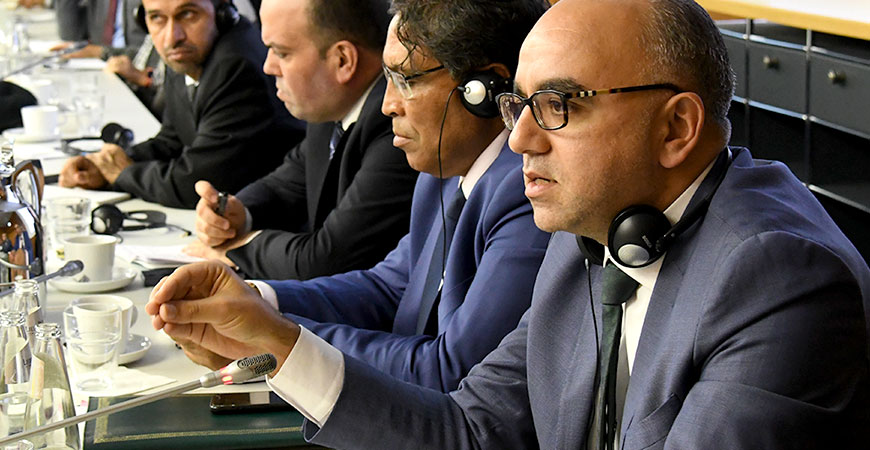
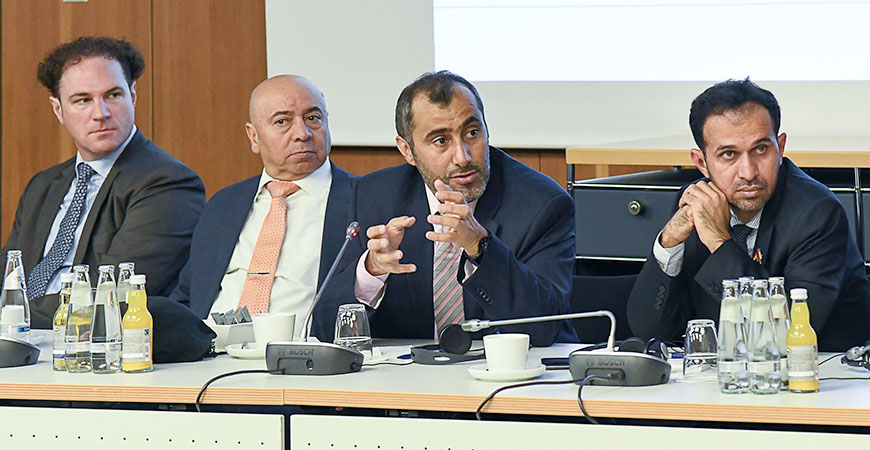
Insight into dual education and training practice
Following the morning's theory, the afternoon saw guests being provided with an insight into the practical training of young people in the context of dual vocational education and training. This started with a visit by the group to the Siemens Professional Education (SPE) Center. A further visit was made to the SHK centre of excellence for plumbing, heating and air conditioning.
In both educational institutions, guests from the Arab countries gained an excellent insight into the implementation of dual training. The tours and discussions on site showed how companies are involved in training in Germany and the motivation they have for doing so. The programme of visits thus very clearly underlined the theoretical aspects explained by Professor Ertl that morning.
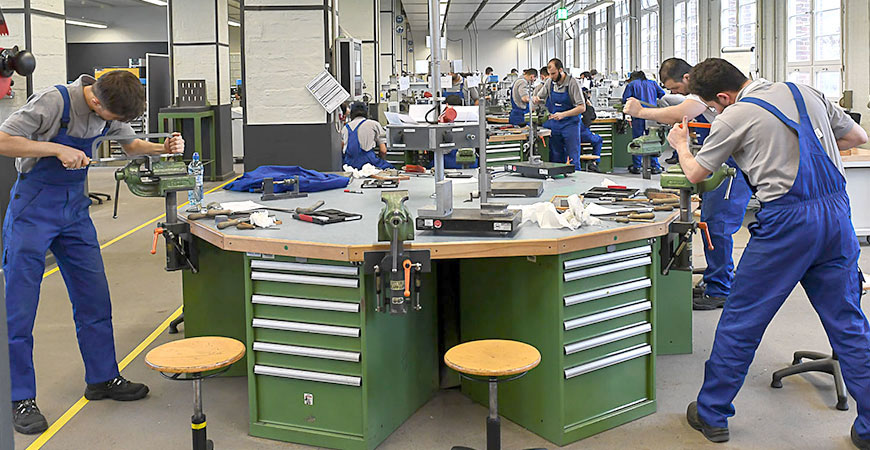
The Siemens Professional Education (SPE) Center is one of the largest company-based educational institutions in Germany and each year provides training for around 300 young people in the areas of controlling, finance, human resources, electronics, information technology, and metalworking.
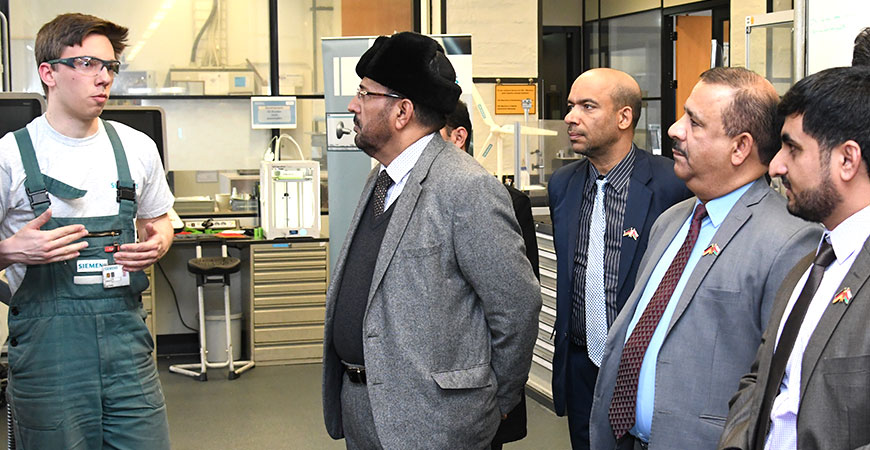
During a tour of the training centre guests took the opportunity to speak directly with trainees. They were pleased to meet fellow countrymen who were on hand to respond to questions about their training at Siemens.
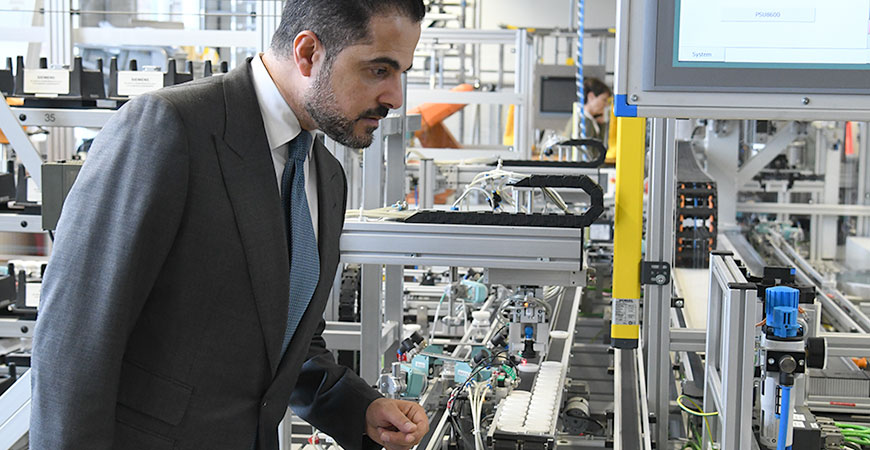
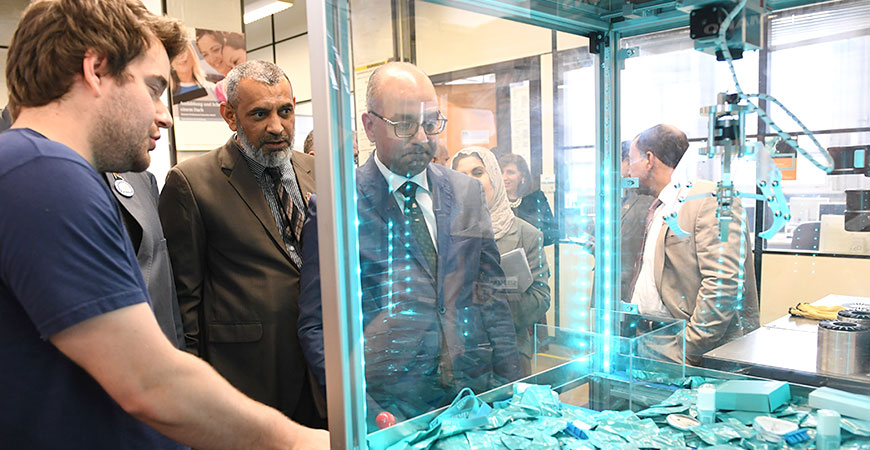
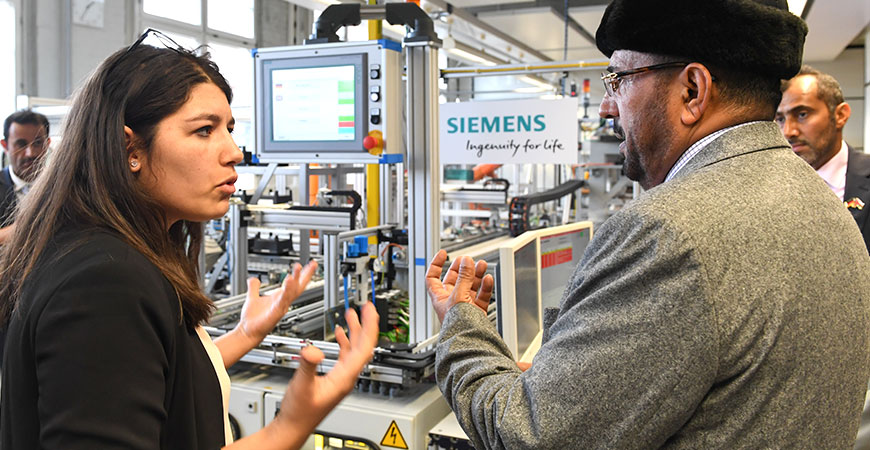
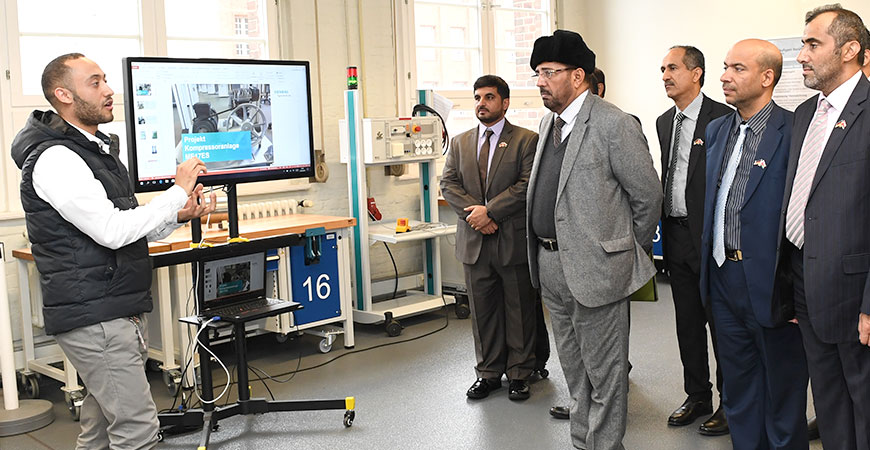
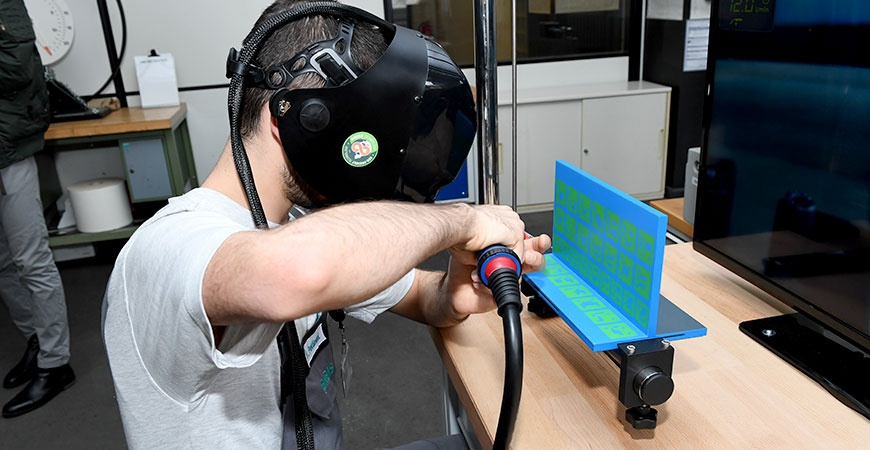
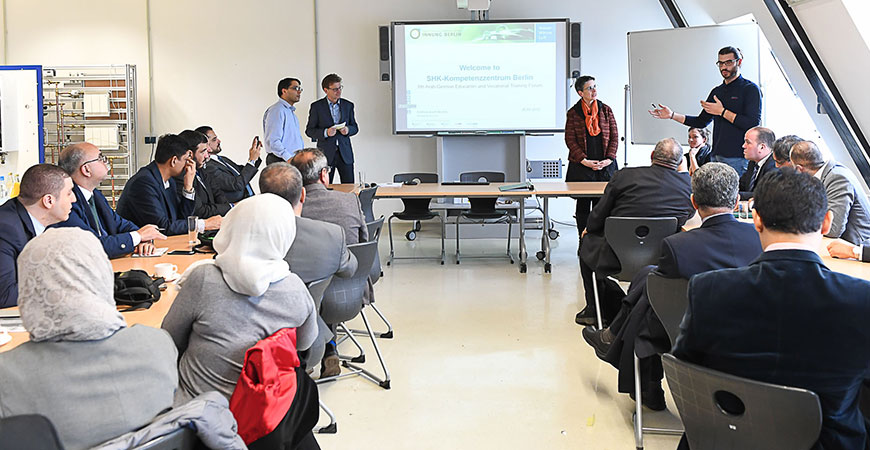
A further visit was made to the SHK centre of excellence for plumbing, heating and air conditioning.
The SHK has 12 modern workshops for gas and oil boilers, pipework and sheet metal working, plumbing installations, information technology, renewable energies, control and automation technology, as well as eight classrooms and a computer suite.
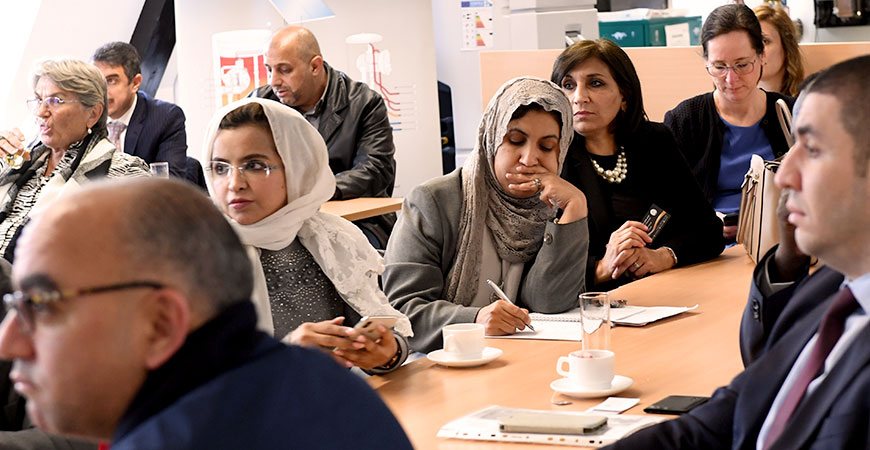
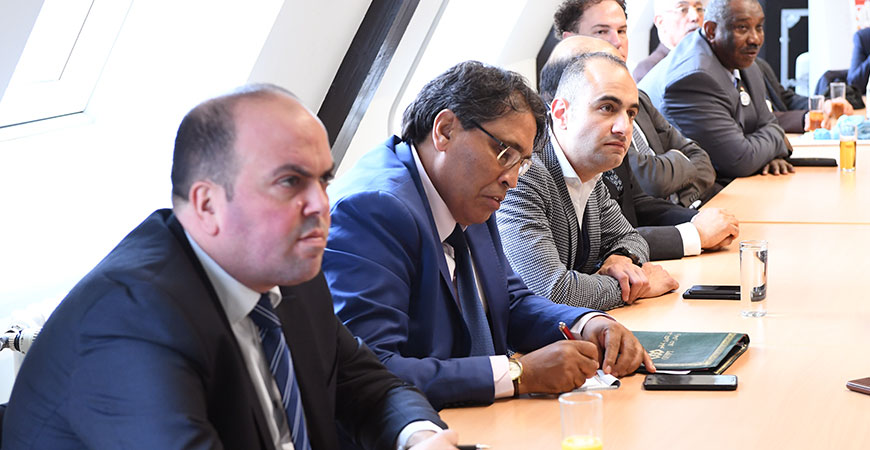
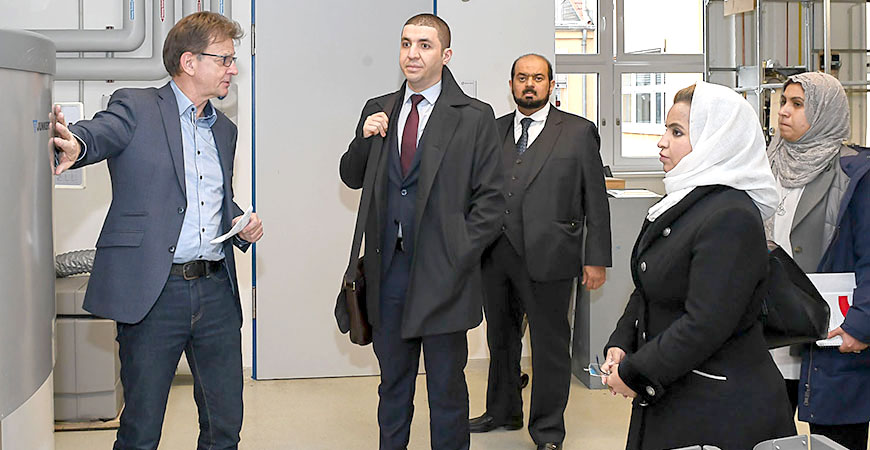
Andreas Koch-Martin, Managing Director of the SHK, guided the guests from the Arab countries through the educational institution.
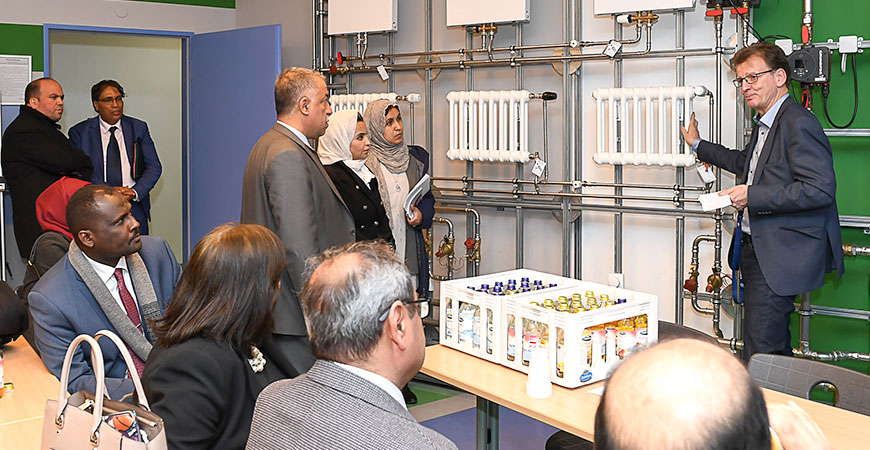
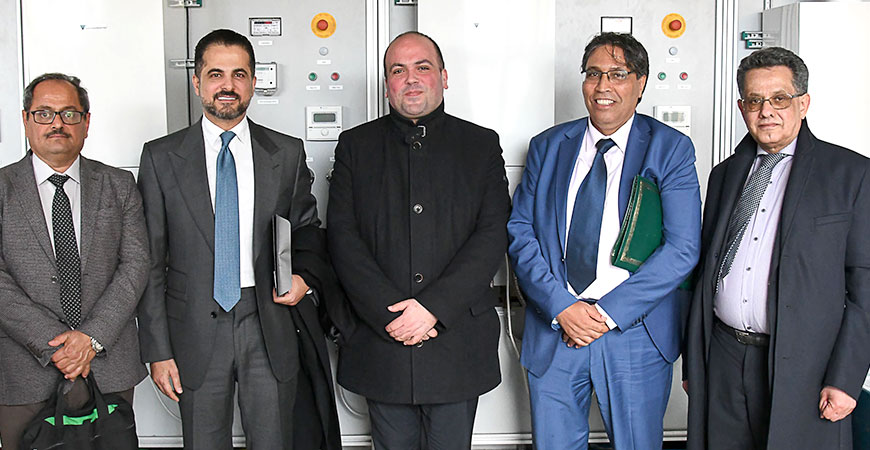
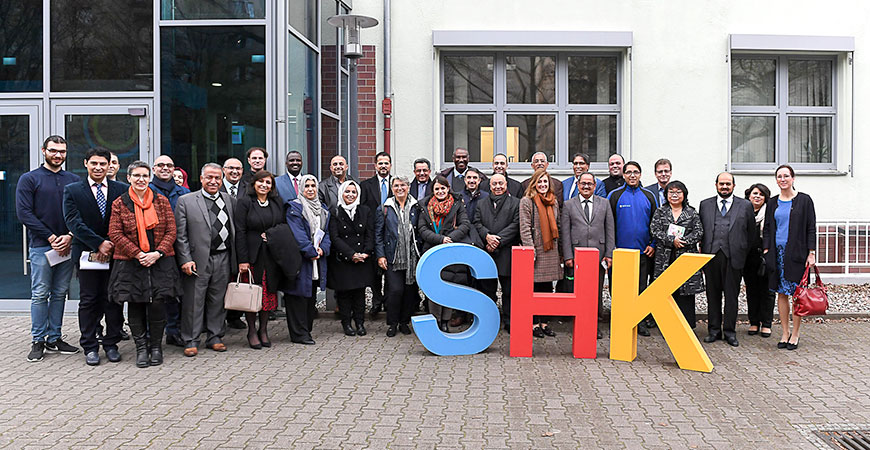
Arab-German networks
In the evening at the end of the first day, participants from Germany and the Arab countries met at a network reception.
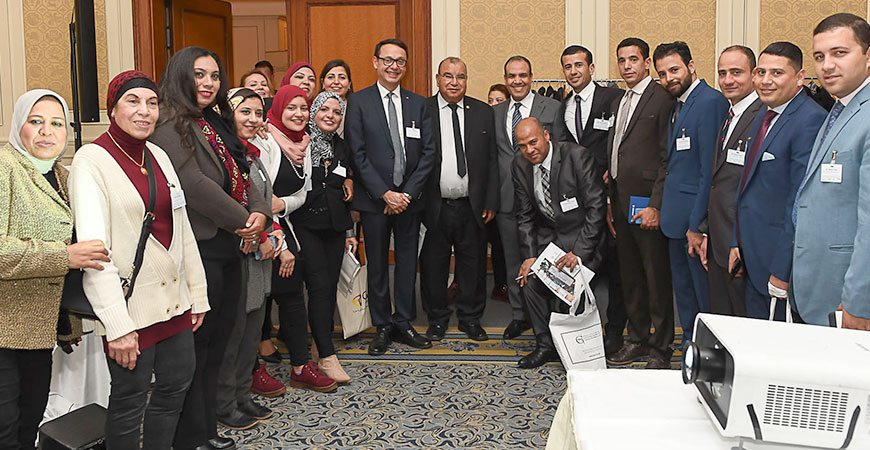
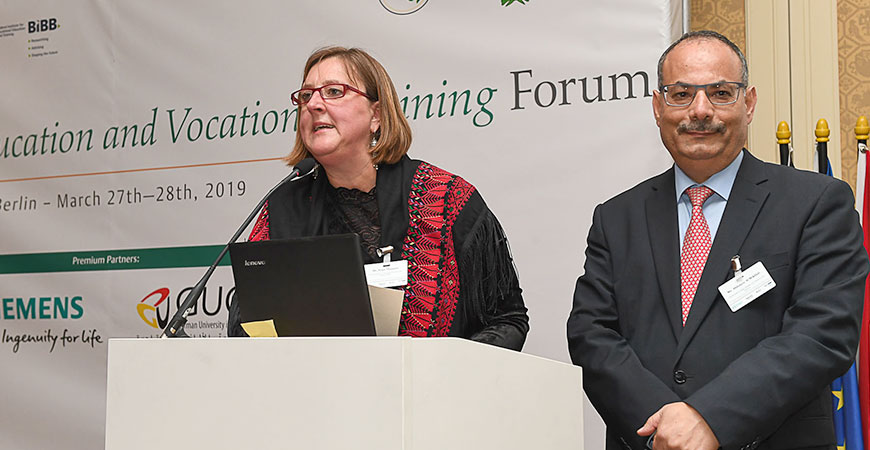
In a brief welcome Birgit Thomann (left) and Abdulaziz Al-Mikhlafi (right) invited guests to approach each other with openness and honesty and to engage in initial discussions to foster a mutual understanding. In doing so, Birgit Thomann once again emphasized the aim of the forum—to develop and expand Arab-German cooperation and to continue this over the long term.
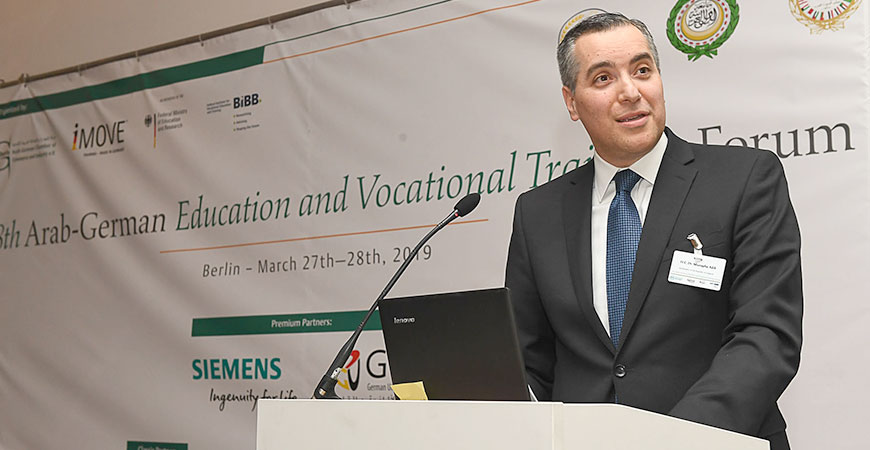
His Excelleny Dr. Mustapha Adib, Ambassador of the Republic of Lebanon and Doyen of the Arab Diplomatic Corps, underlined the value of education and training as the backbone of the economy and society. Adib referred, for example, to the area of renewable energies as one of the sectors in which there was a huge need for skilled workers to be trained.
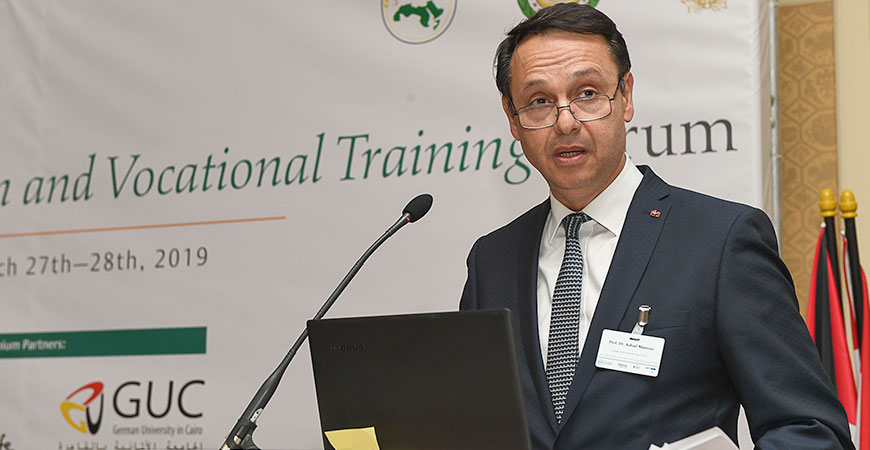
Professor Dr. Ashraf Mansour, founder and president of the German University in Cairo, Egypt, reminded those present that today national borders are moving ever closer together. This requires great dependability and stability in societies, as a result of which investment in young people as the cornerstones of society is more important than ever.
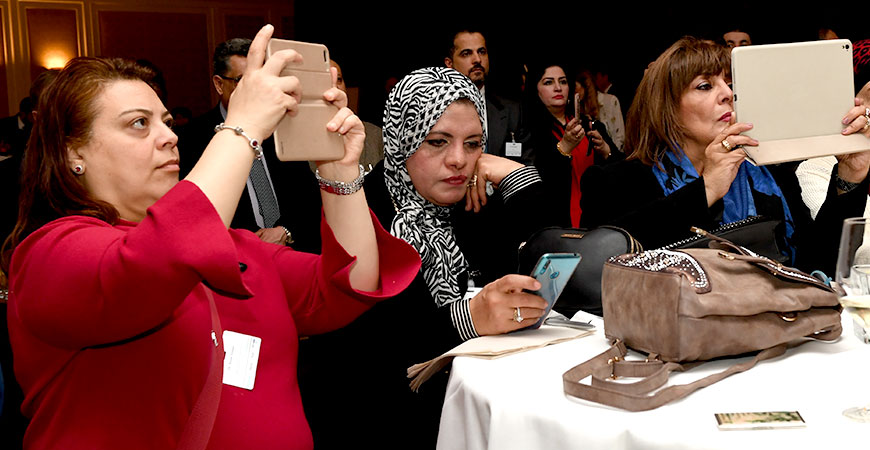
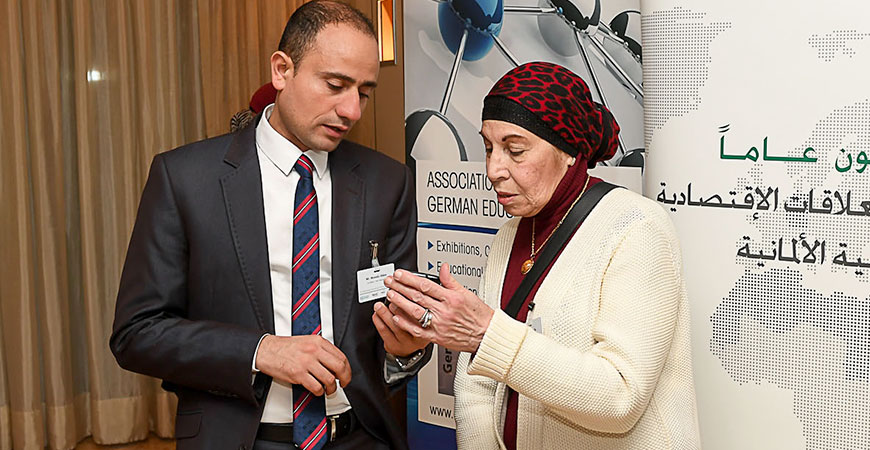
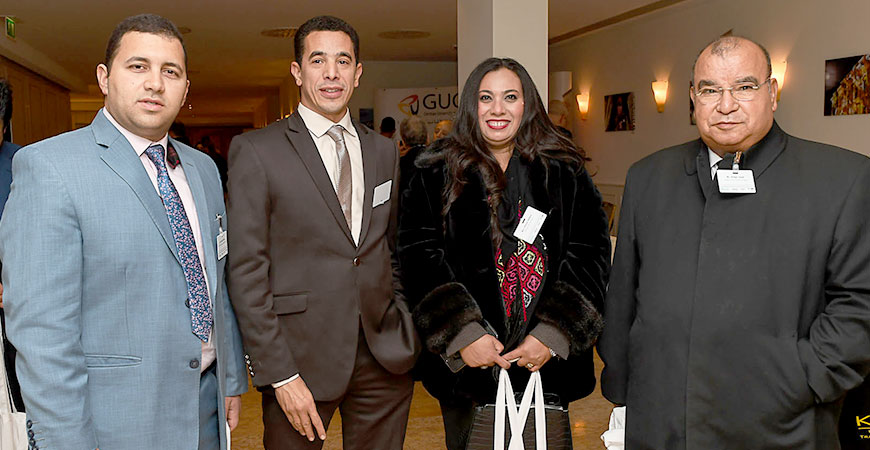
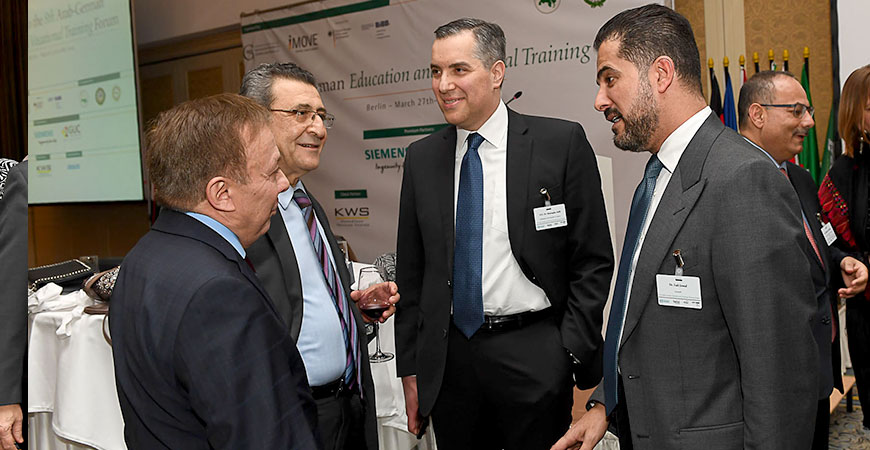
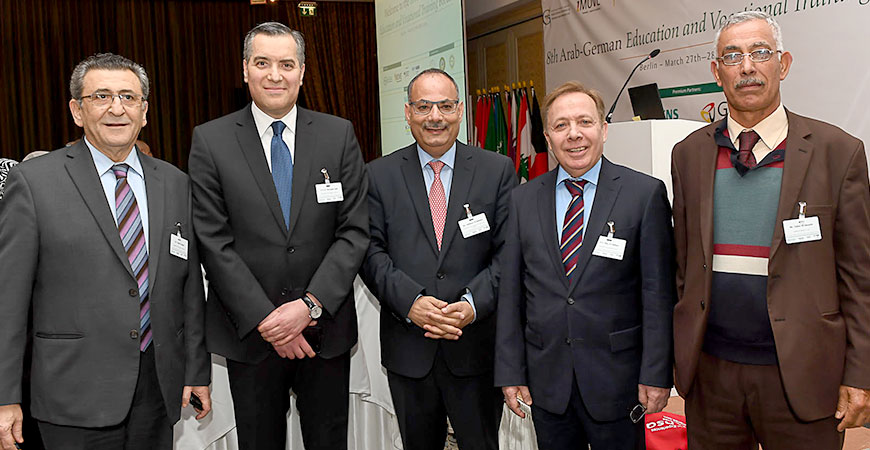
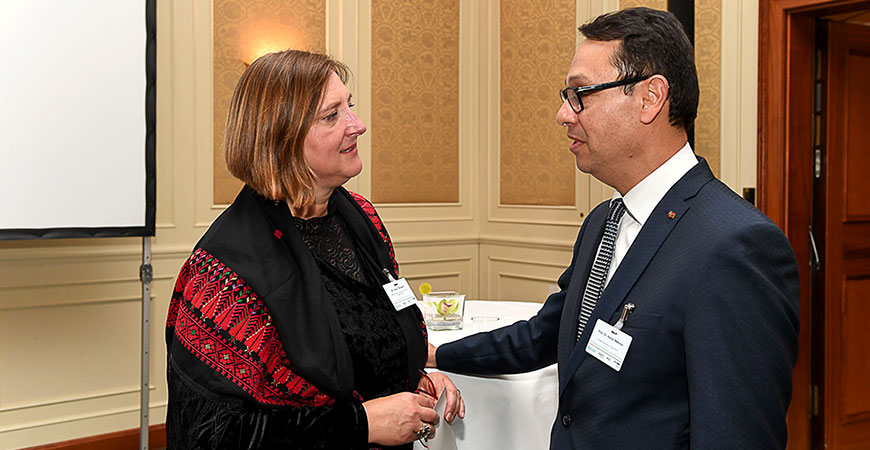
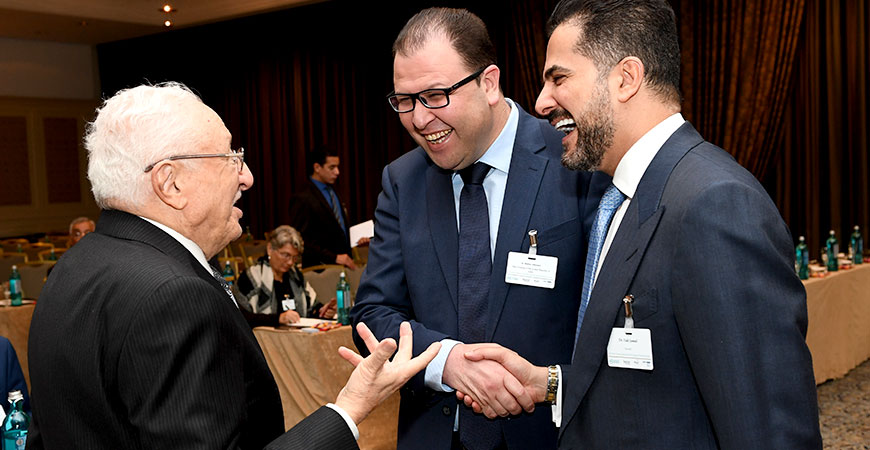
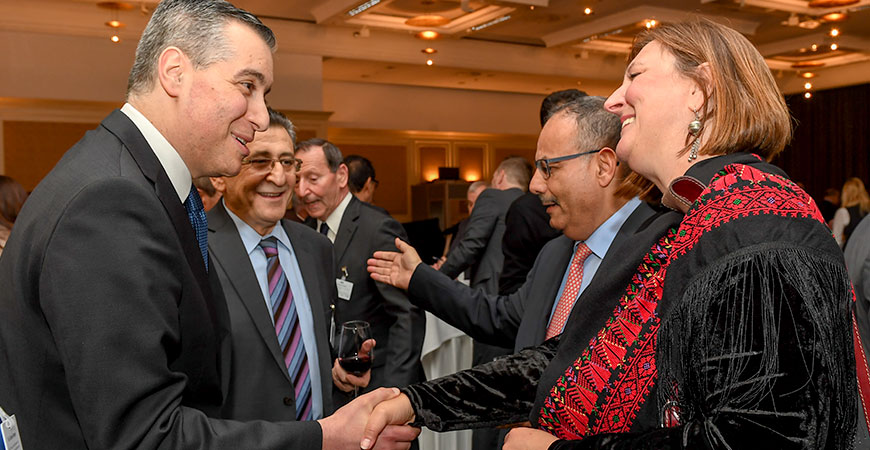
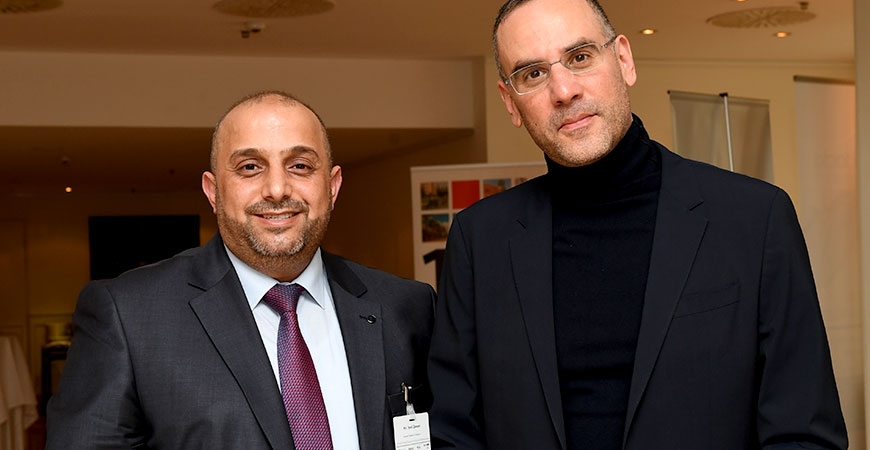
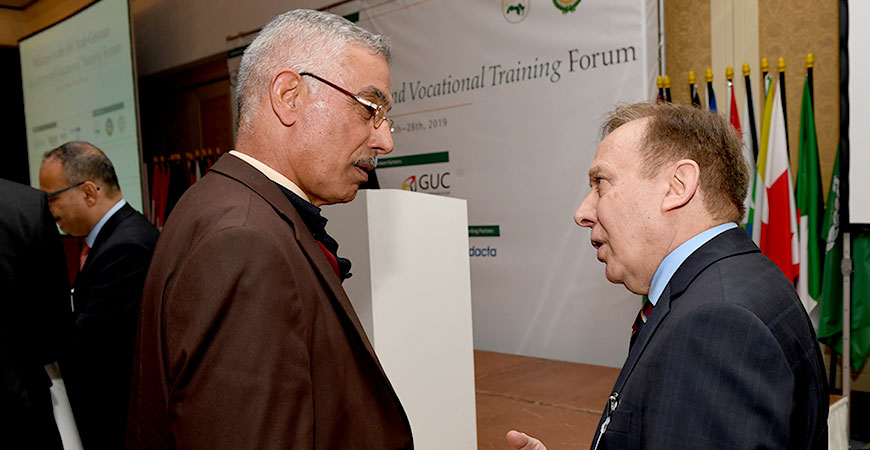
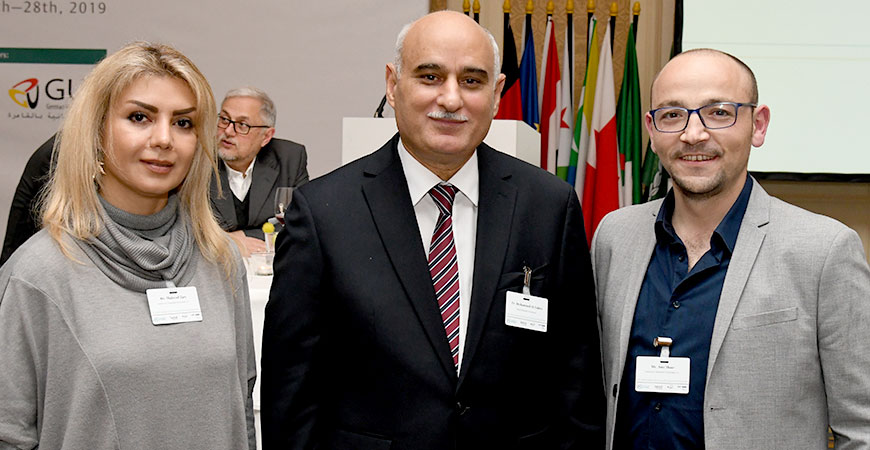
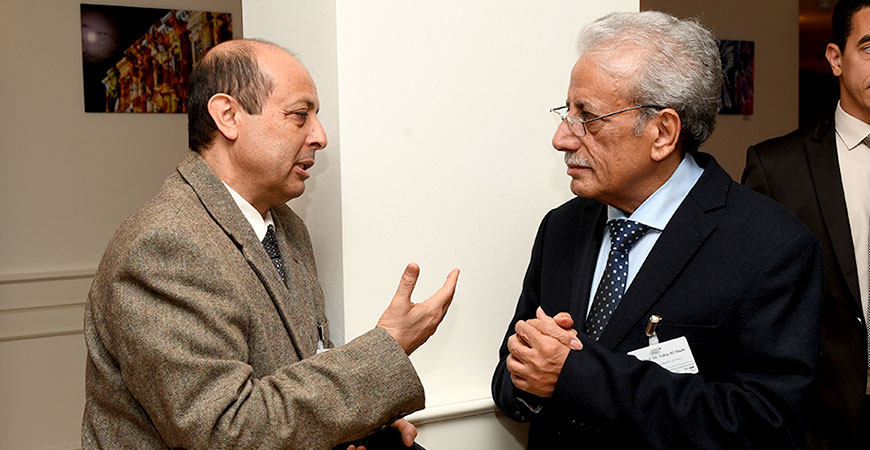
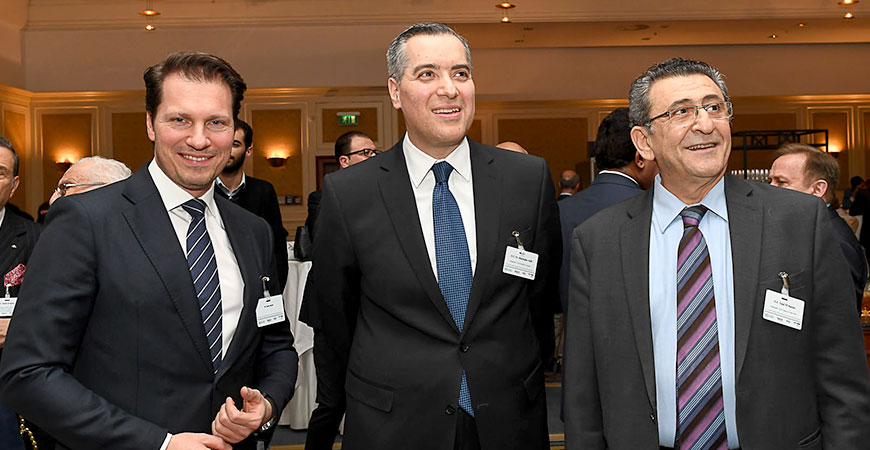
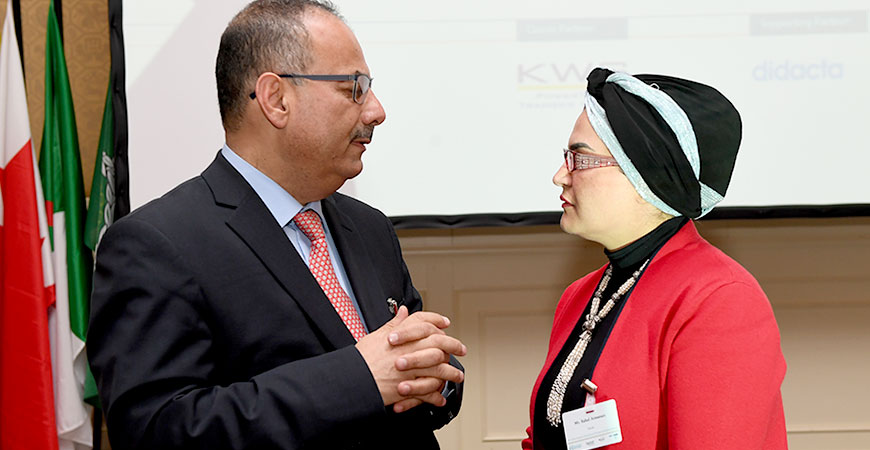
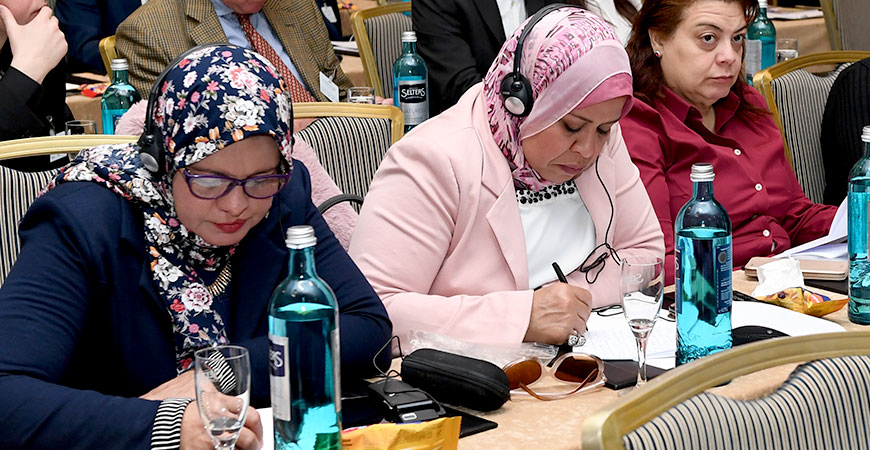
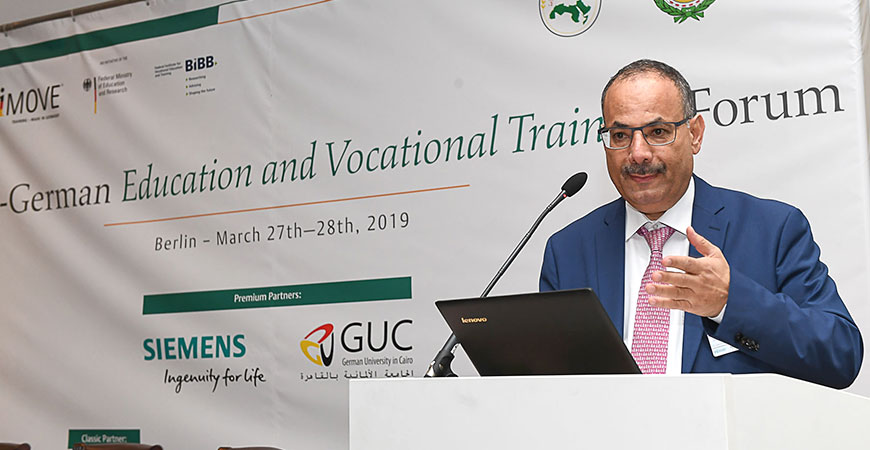
Abdulaziz Al-Mikhlafi used the opportunity to take a quick look back at the programme of visits of the previous day. The programme had proven to be very beneficial for the guests from the Arab countries, providing them with a great understanding of dual training and the trainees' high levels of expertise.
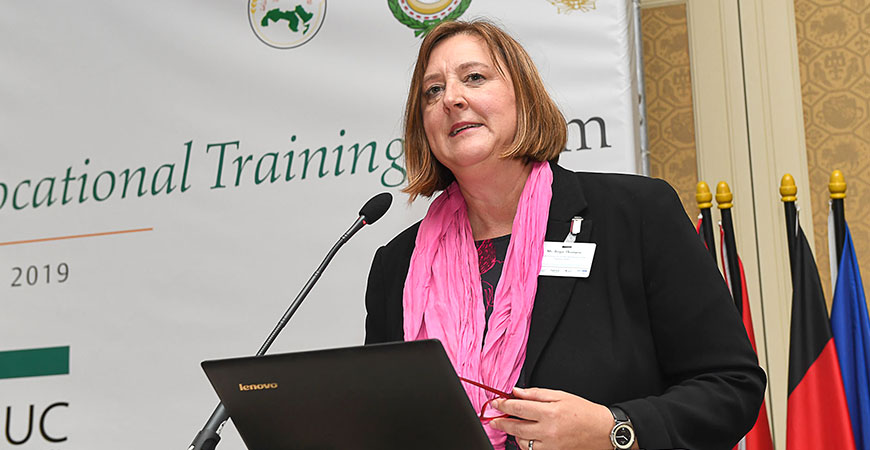
Birgit Thomann stressed that international VET cooperation was never about taking the dual system in Germany, which has grown over the decades, and transferring it to other countries. Instead, the dual elements have to be localised in order to function successfully for society and for business in the country intended.
She appealed to all those present to speak out in the discussions which would follow, to talk to the speakers and to make the most of the 8th Arab-German Education and Vocational Training Forum.
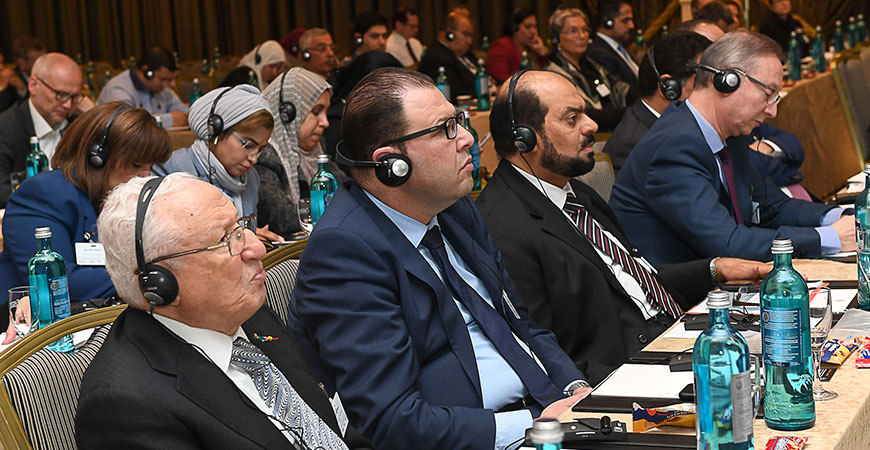
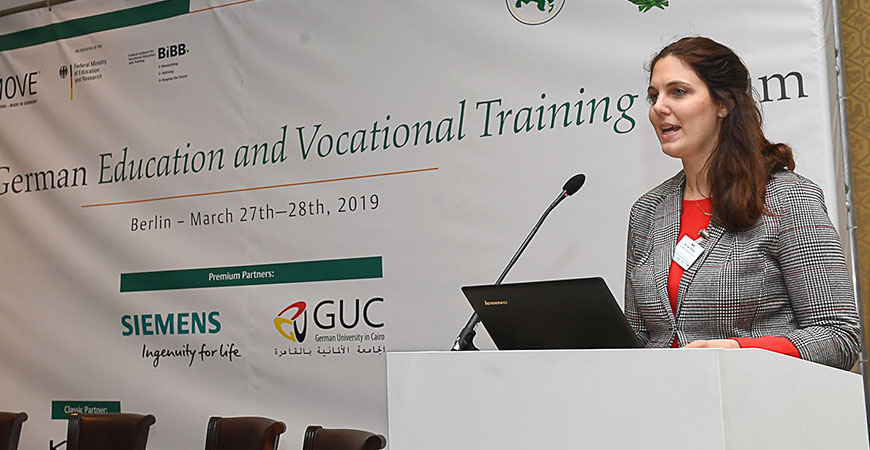
Inga Hennicke underlined that the Arab-German exchange is highly valued by her ministry. As a Ministry of Education initiative, iMOVE has established itself as a key contact partner for international business relationships in VET. Cooperation between the iMOVE and Ghorfa partners is also creating meaningful interaction for Arab German cooperation in VET.
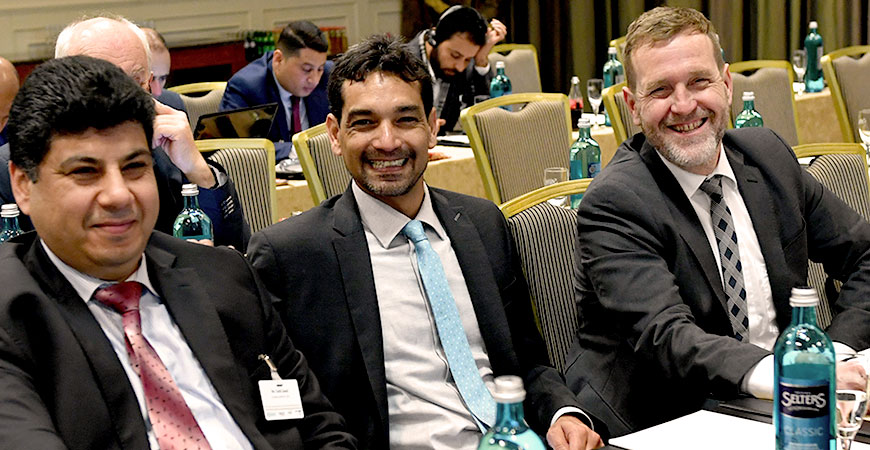
Requirements and solution options
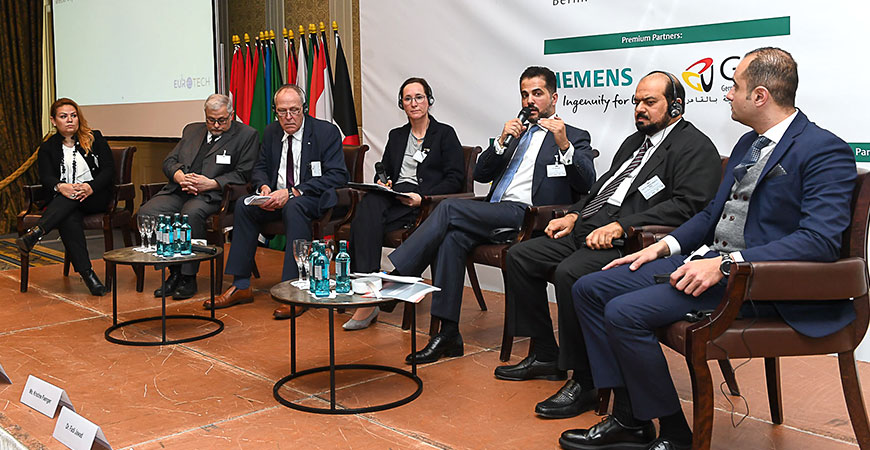
As part of the symposium, representatives from Arab countries provided insights into the needs and activities of their respective countries. The German representatives presented successful examples of their international business activities in vocational education and training. Kristine Faenger (fourth from left) of the BMBF initiative iMOVE moderated the symposium.
Symposium participants from left to right:
- Sherine Salamony, German University in Cairo, Egypt
- Daniel Klee, Chamber of Industry and Commerce (IHK) Projektgesellschaft mbH, Germany
- Uwe Moeller, KWS PowerTech Training Center, Germany
- Kristine Faenger, iMOVE
- Dr. Fadi Jawad, Eurotech Training & Consulting, Kuwait
- Professor Dr. Waheeb Ahmed Al Khaja, Board of Education, Bahrain
- Eng. Ahmed El Saadany, Siemens Professional Education, Egypt
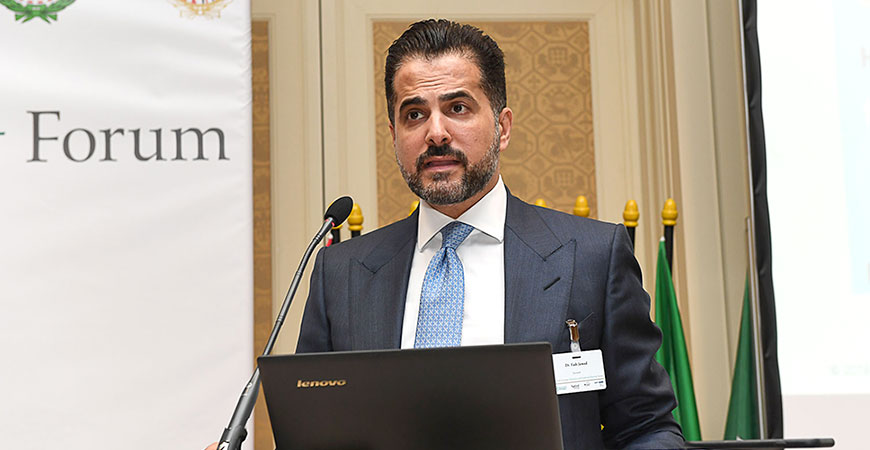
Dr. Fadi Jawad is General Director of Eurotech Training & Consulting based on Kuwait. Jawad addressed the impacts of the digital revolution on vocational education and training. As part of this, human adaptability is having to face up to technical change. This issue necessitates lifelong learning so that the workforce is able to constantly keep pace with changing technology.
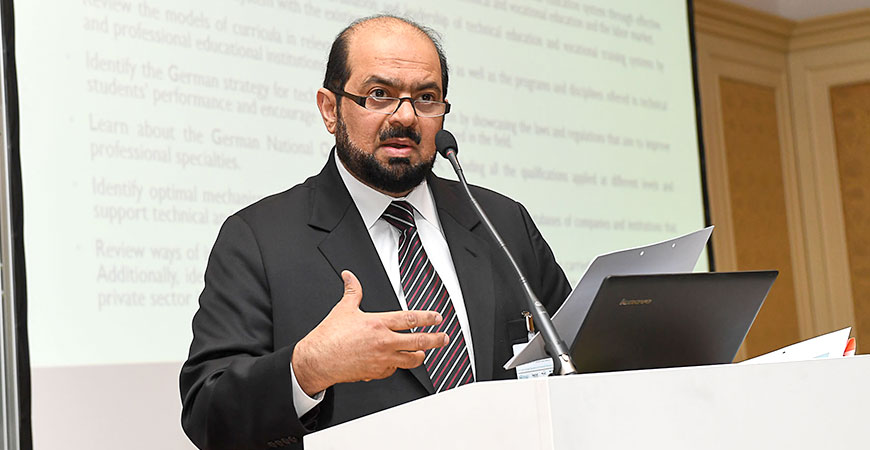
Professor Dr. Waheeb Ahmed Al Khaja, Member of the Board and Chairman of the Board of Education, Bahrain, focussed on the issue of how Germany can help by using its expertise to improve vocational education and training in the Kingdom of Bahrain. German dual education and training is regarded as the benchmark in the Kingdom, and whether and how dual elements can be implemented in Bahrain is being analysed.
Al Khaja made reference, for example, to trades throughout the automotive, welding and water sectors as examples where there is a huge need for the qualification and further development of skilled workers.
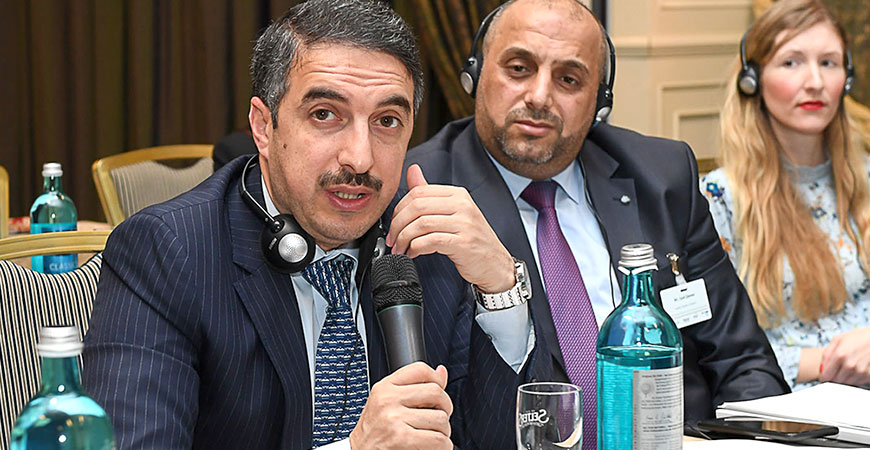
The range of contributions from participants led to lively discussions with the speakers on the podium.
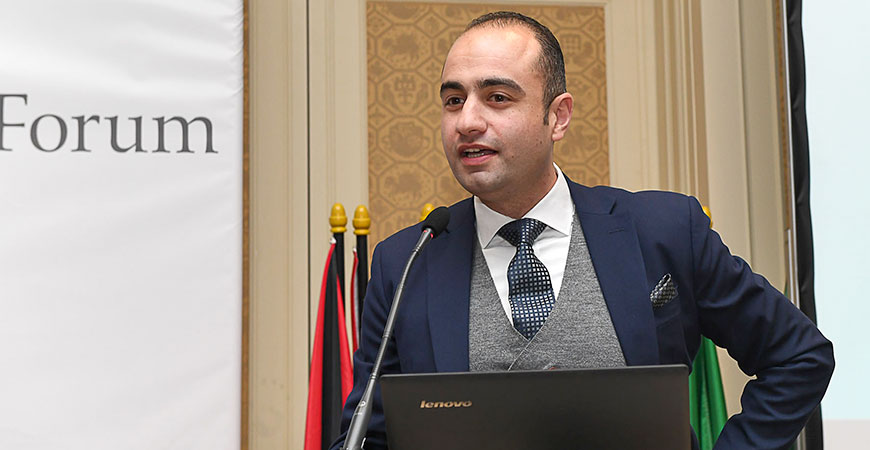
As Head of Siemens Professional Education - Middle East and North Africa, Eng. Ahmed El Saadany talked about his experience of training skilled workers in Egypt.
Siemens continually requires skilled workers for the operation of its power plants. This represents a constant challenge for the company. For example, Siemens conducts 60,000 interviews in order to ultimately find 600 appropriate candidates for a training programme.
The Egyptian German Technical Academy has now been established—likewise with the help of German funding—offering extensive provision of training and advanced training, which also caters for those changing careers. The first students are due to begin at the end of 2019/start of 2020.
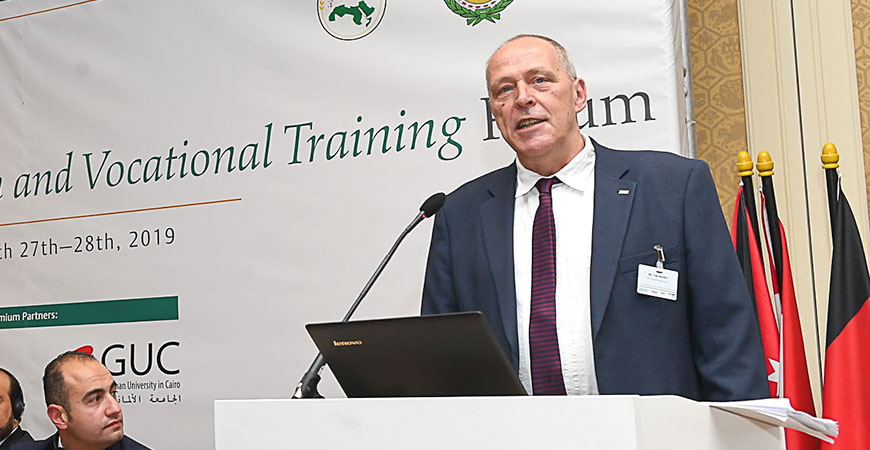
Uwe Moeller, Project Manager at the KWS PowerTech Training Center, talked about an example from Turkey where 38 candidates were trained for a Combined Cycle Power Plant (CCPP). The training was so successful that ten experienced Turkish engineers were subsequently trained as trainers.
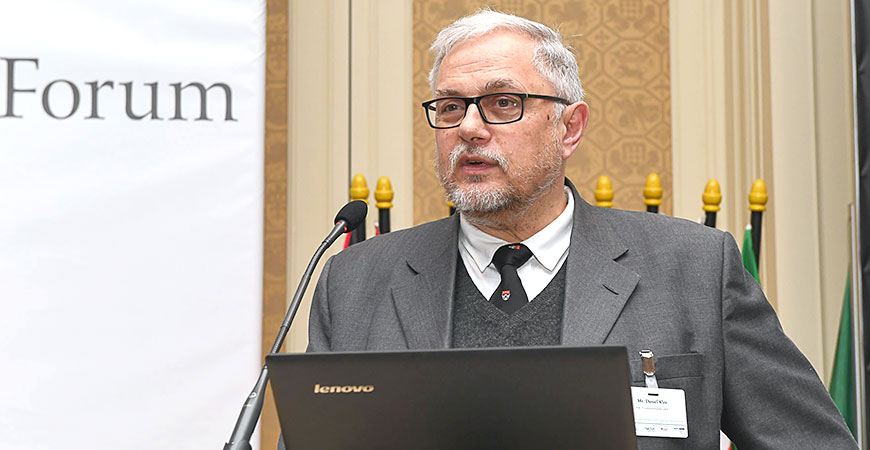
Daniel Klee, International Long Term Expert at the Chamber of Industry and Commerce (IHK) Projektgesellschaft mbH, presented an example from Egypt from the area of human resource development. It involves training specialists in human resource consulting and recruitment. The graduates complete an IHK certified course of 160 hours training over 13 weeks on a part-time basis. The training culminates in a written examination, a case study and an oral examination.
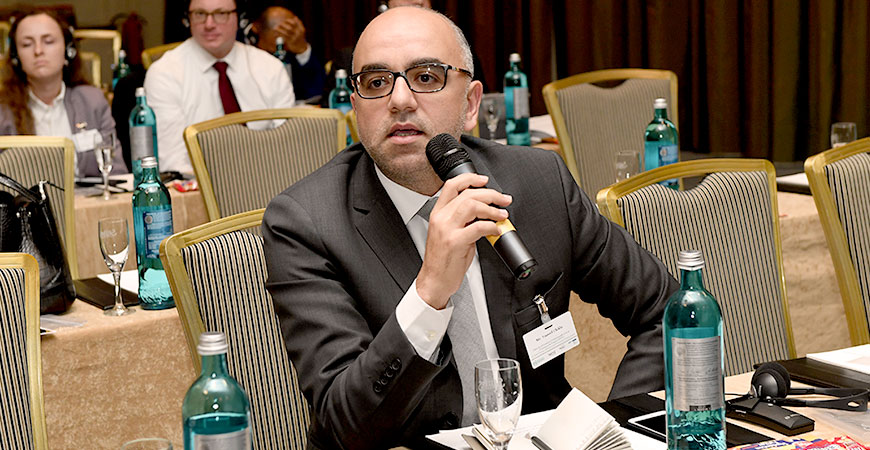
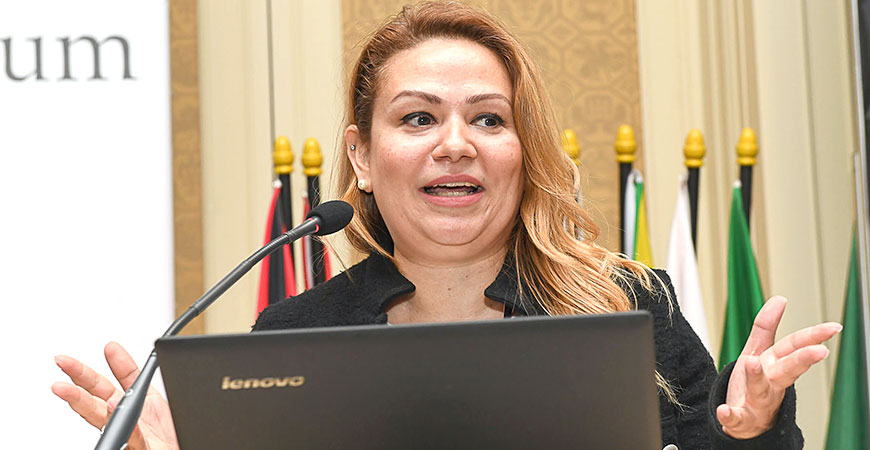
Sherine Salamony is responsible for communication and external relations at the German University in Cairo (GUC). She explained that the GUC is also very active in vocational education and training. Due to its practical relevance and increased employability of young people, VET was a cornerstone of the GUC from the very start. It was also a key component in the vision of its founder, Professor Dr. Ashraf Mansour, who spoke to the guests the previous evening. The GUC is continually seeking contact and cooperation with companies for the vocational courses.
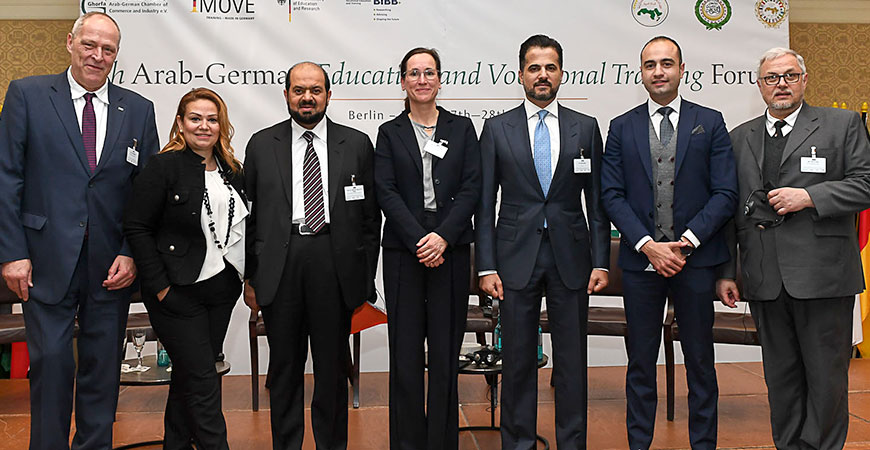
Challenges in vocational education and training
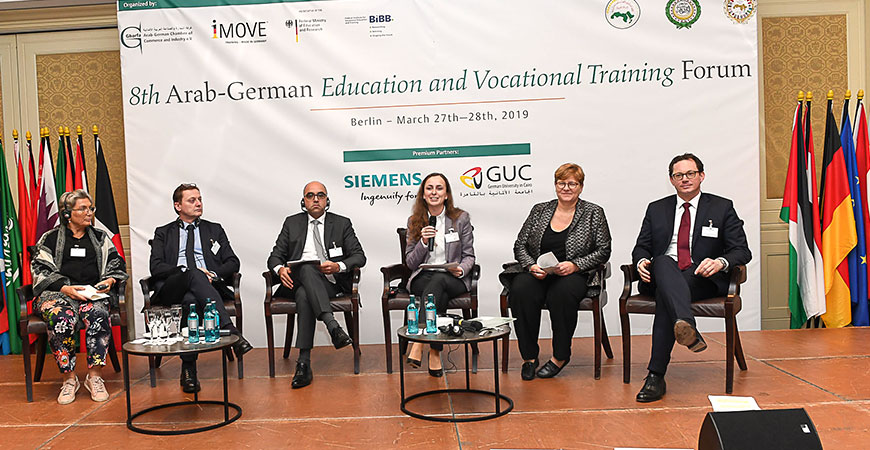
The panel discussion on the challenges facing vocational education and training, on potential solutions and regarding ongoing cooperation was moderated by Maria Rueter (fourth from left) from Siemens AG.
Discussion panel participants from left to right:
- Heiderose Moossen, German University of Technology, Oman
- Carlo Humberg, TÜV Rheinland Akademie, Germany
- Youssef Cheikhi, Office de la Formation Professionnelle et de la Promotion du Travail, Morocco
- Maria Rueter, Siemens AG, Germany
- Professor Dr. Claudia Warning, Federal Ministry for Economic Cooperation and Development (BMZ), Germany
- Thorsten Ende, Siemens AG, Germany
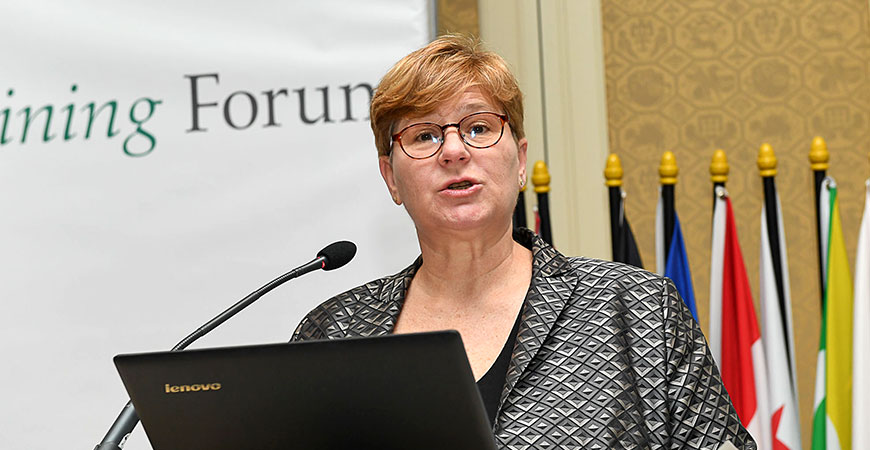
In a keynote speech Professor Dr. Claudia Warning, Federal Ministry for Economic Cooperation and Development (BMZ), explained that the ministry supports ongoing and long-term developments.
This makes support possible in vocational education and training at a systemic level. High-quality training takes time and requires a thorough approach. In terms of funding, short training programmes are therefore not an option for the BMZ.
With regard to the urgent need to increase the appeal of vocational education and training in the region, Warning emphasized that this is a joint undertaking which could only be successful if all parties— parents, society, business and government—act together.
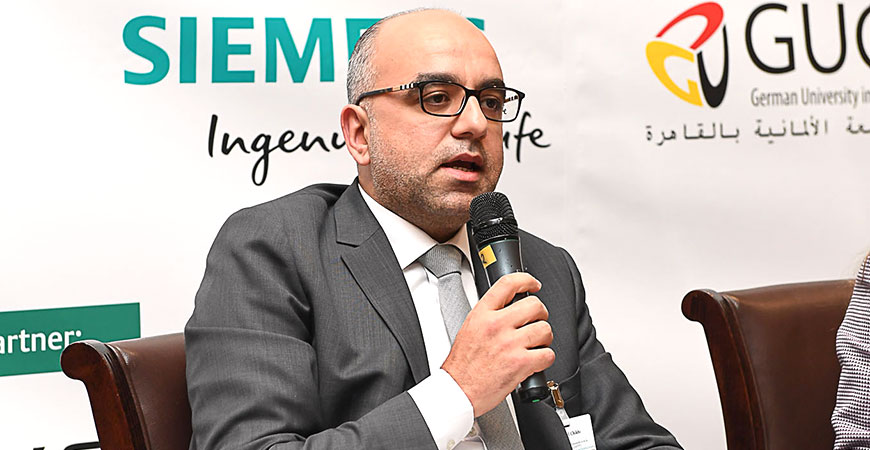
Youssef Cheikhi, Communication Director at the Moroccan Office de la Formation Professionnelle et de la Promotion du Travail (OFPPT), gave an account of the current status of vocational education and training in Morocco.
The further development and improvement of vocational education and training are the focus of the Moroccan government. This is because there is a huge quantitative and qualitative imbalance in Morocco between young people seeking work and the supply of jobs. For example, there are only 80,000 jobs for around 200,000 university graduates.
Cheikhi stressed that, for Morocco, cooperation with Germany as a strategic partner is very important. To do so, Morocco needs support ranging from the development of the occupations to the modernisation of curricula and the training of trainers.
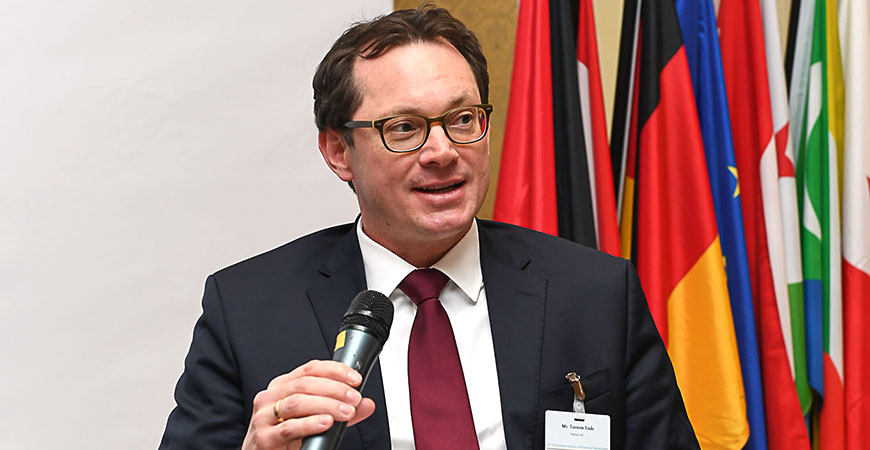
On the subject of the "Responsibility of German exporting companies and creating local jobs" Thorsten Ende, Vice Head of Government Affairs and Head of Government-to-Government at Siemens, revealed that for every person Siemens employs in its power plants, a further 20 jobs are created locally with suppliers, customers and other related organisations.
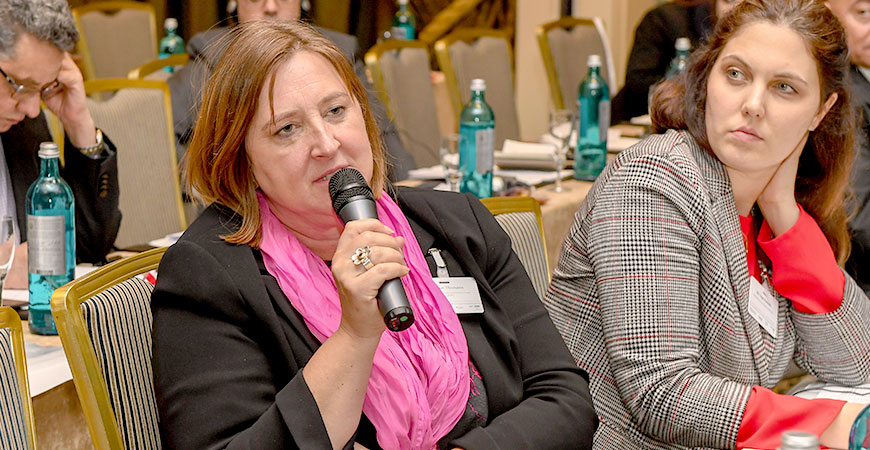
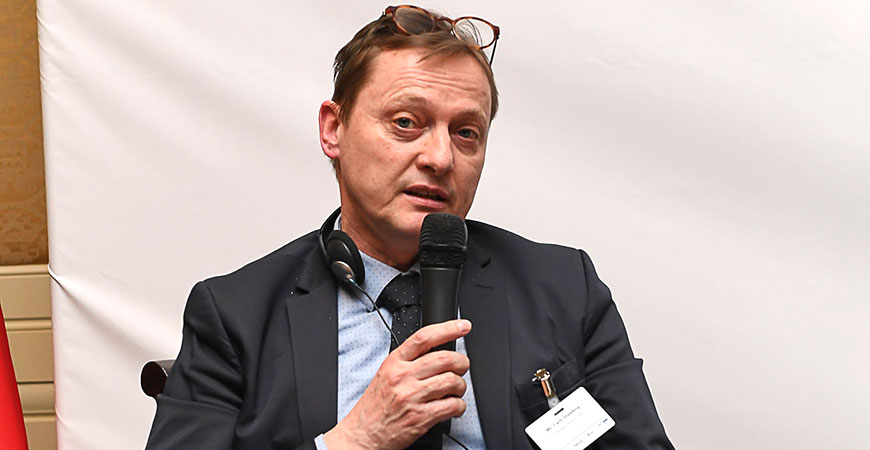
Carlo Humberg who is responsible for the business development of TÜV Rheinland Akademie, gave an account of the qualifications for industry from TÜV Rheinland in Saudi-Arabia. Modular and practical training courses take place as part of this. The major challenge is finding qualified trainers capable of leading the training courses.
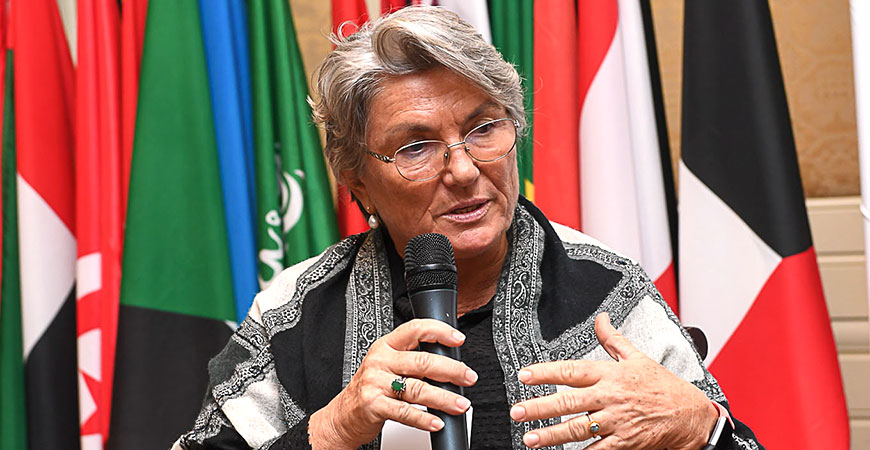
Heiderose Moossen, Head of Vocational Education and Training at the German University of Technology in Oman (GUtech) pointed out that, in many Arab countries, industry outside of the oil and gas sectors is still very underdeveloped. There has never been any investment in training. This is evident today in the huge problems of unemployment and skilled worker shortages and all the consequences these entail for society and business.
GUtech is cooperating with companies to provide three-year training courses. Moossen outlined, for example, the following challenge for her university which is typical for the entire region: around half of companies do not want any trainees because trainees expect, at the very least, a full salary for their work.
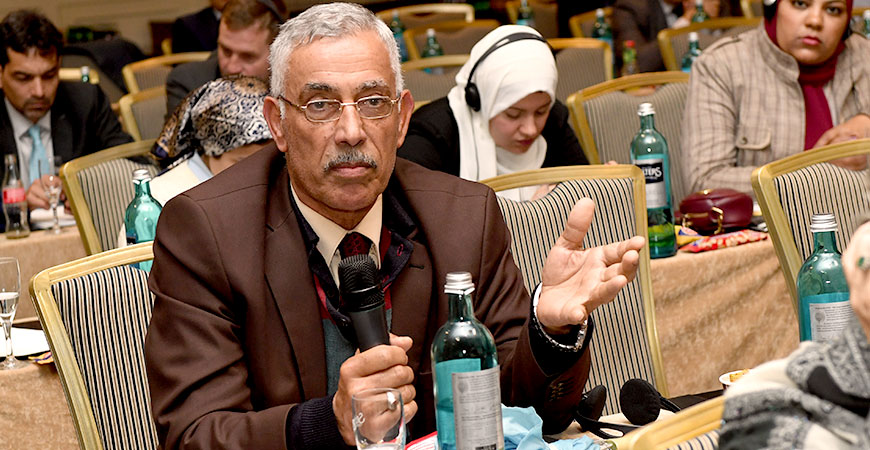
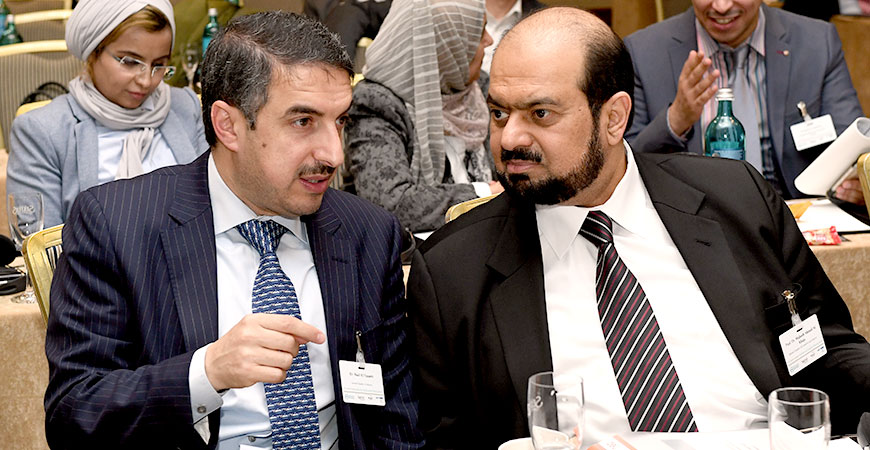
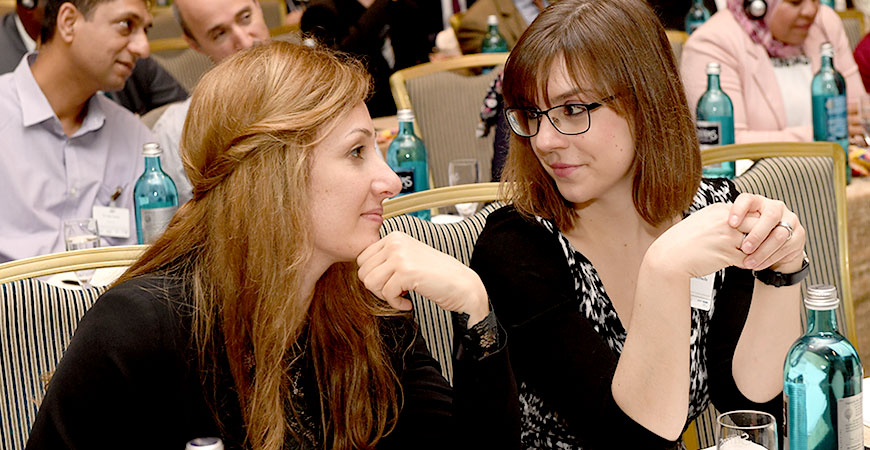
Arab-German education and training cooperation
The second day of the forum focussed specifically on formulating requirements and presenting successful examples of international VET cooperation.
To begin with, those present were welcomed by Al-Mikhlafi (Ghorfa), Birgit Thomann (BIBB) and Inga Hennicke from the BMBF.